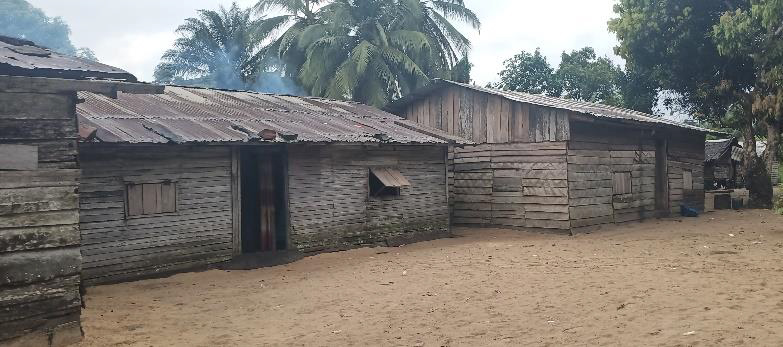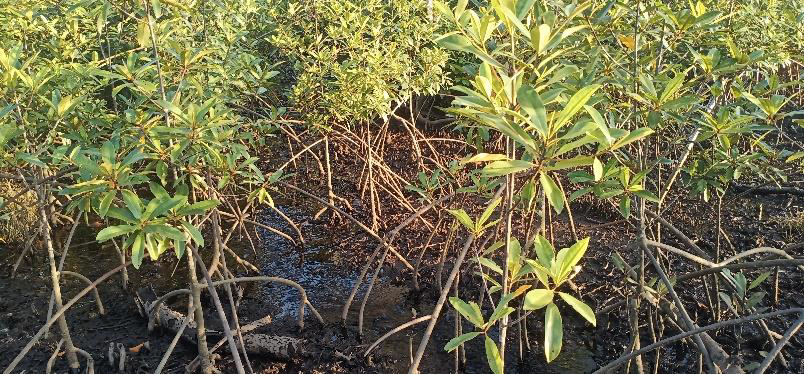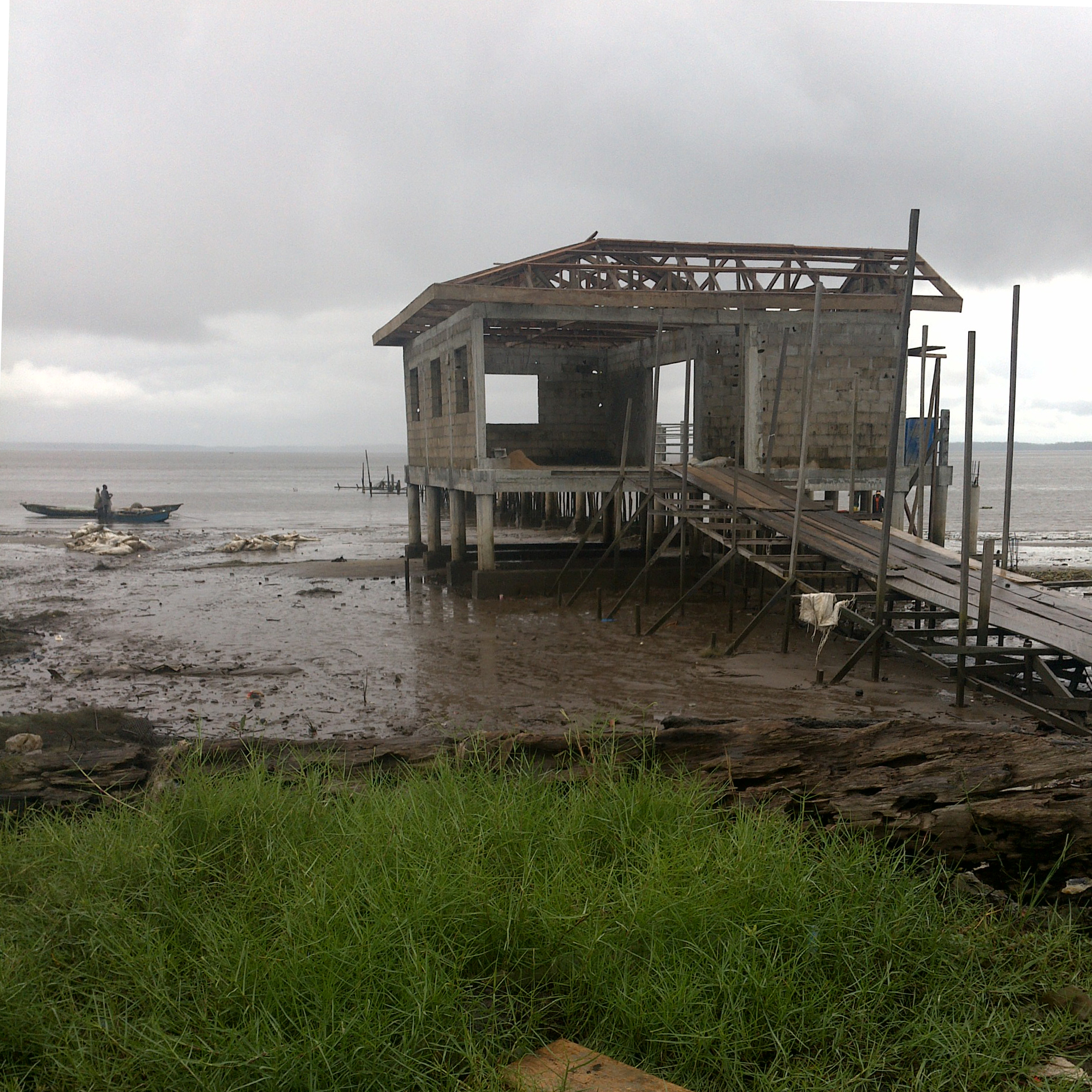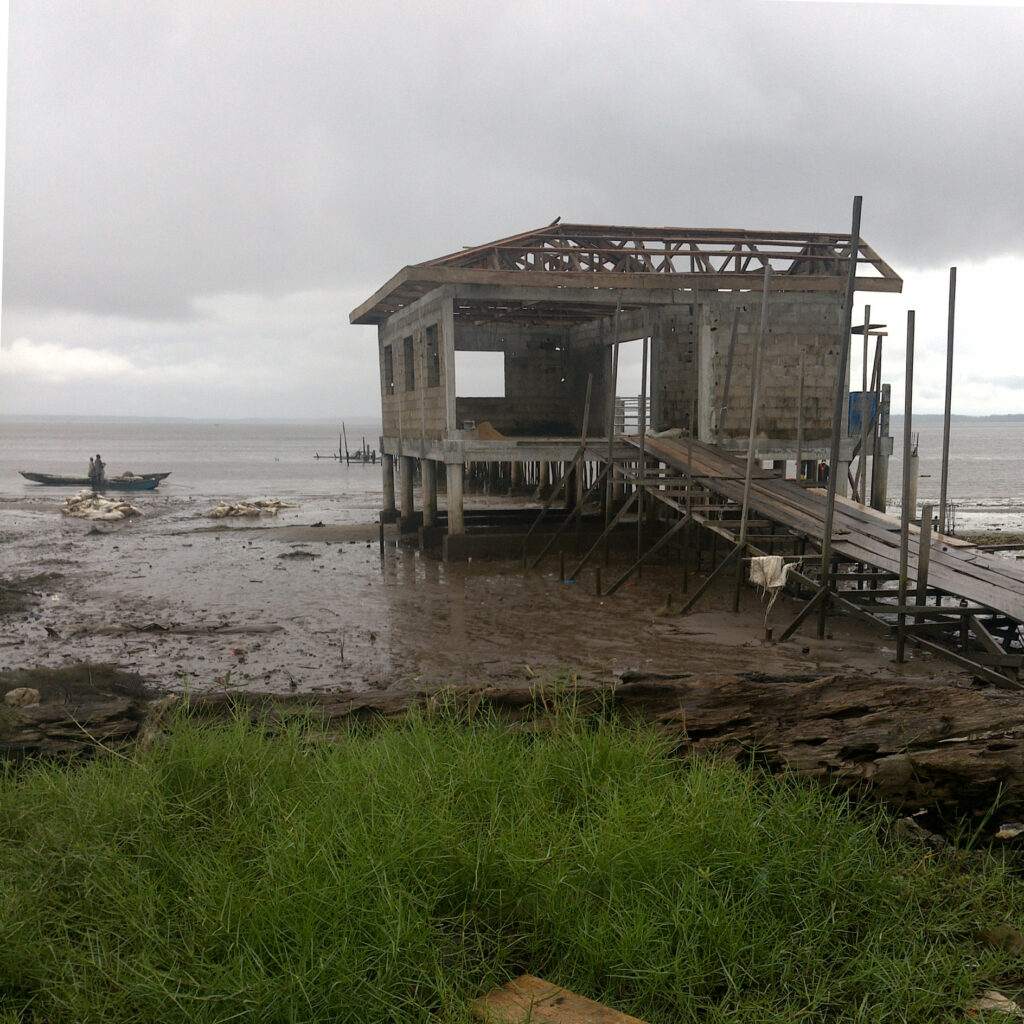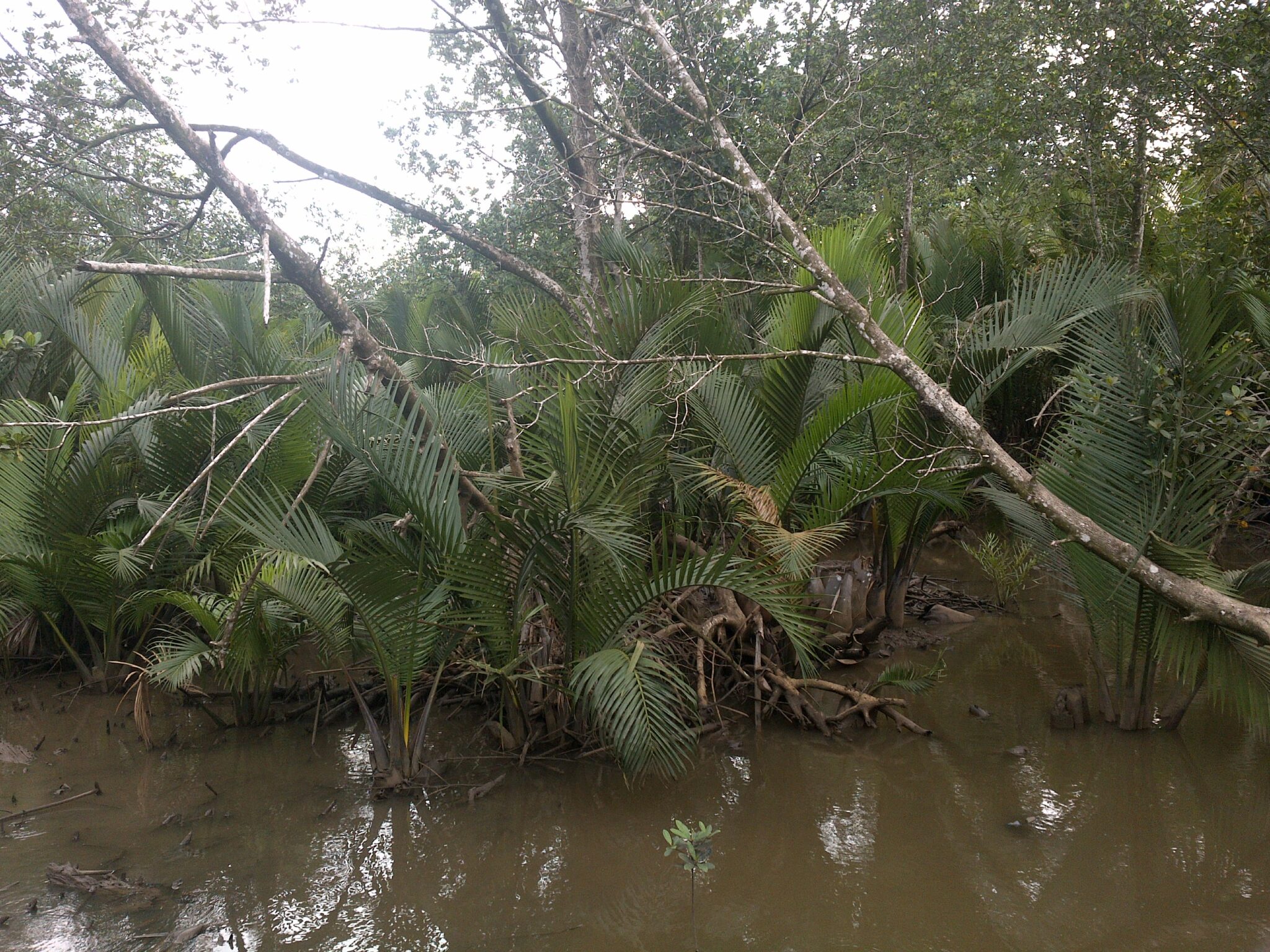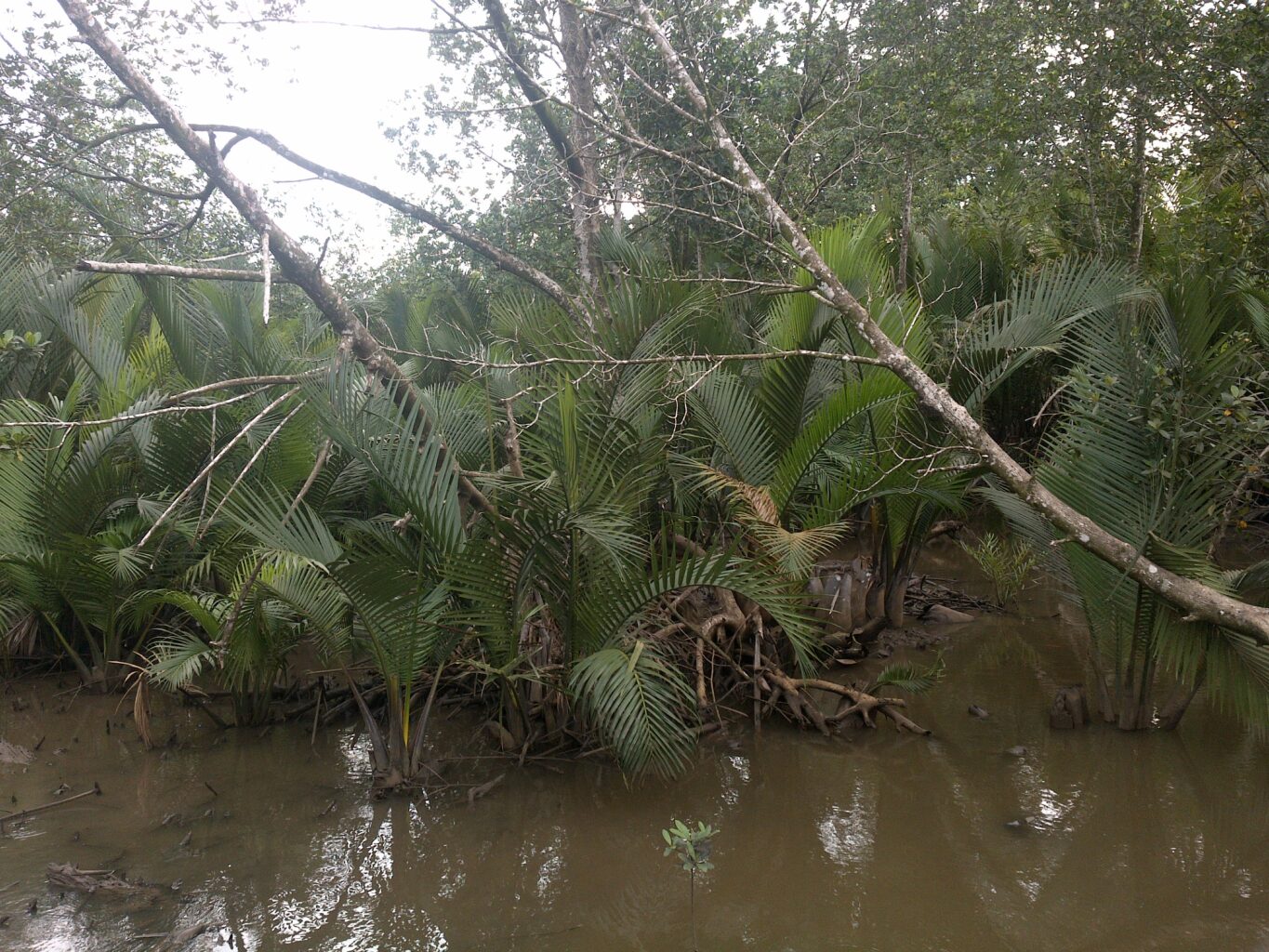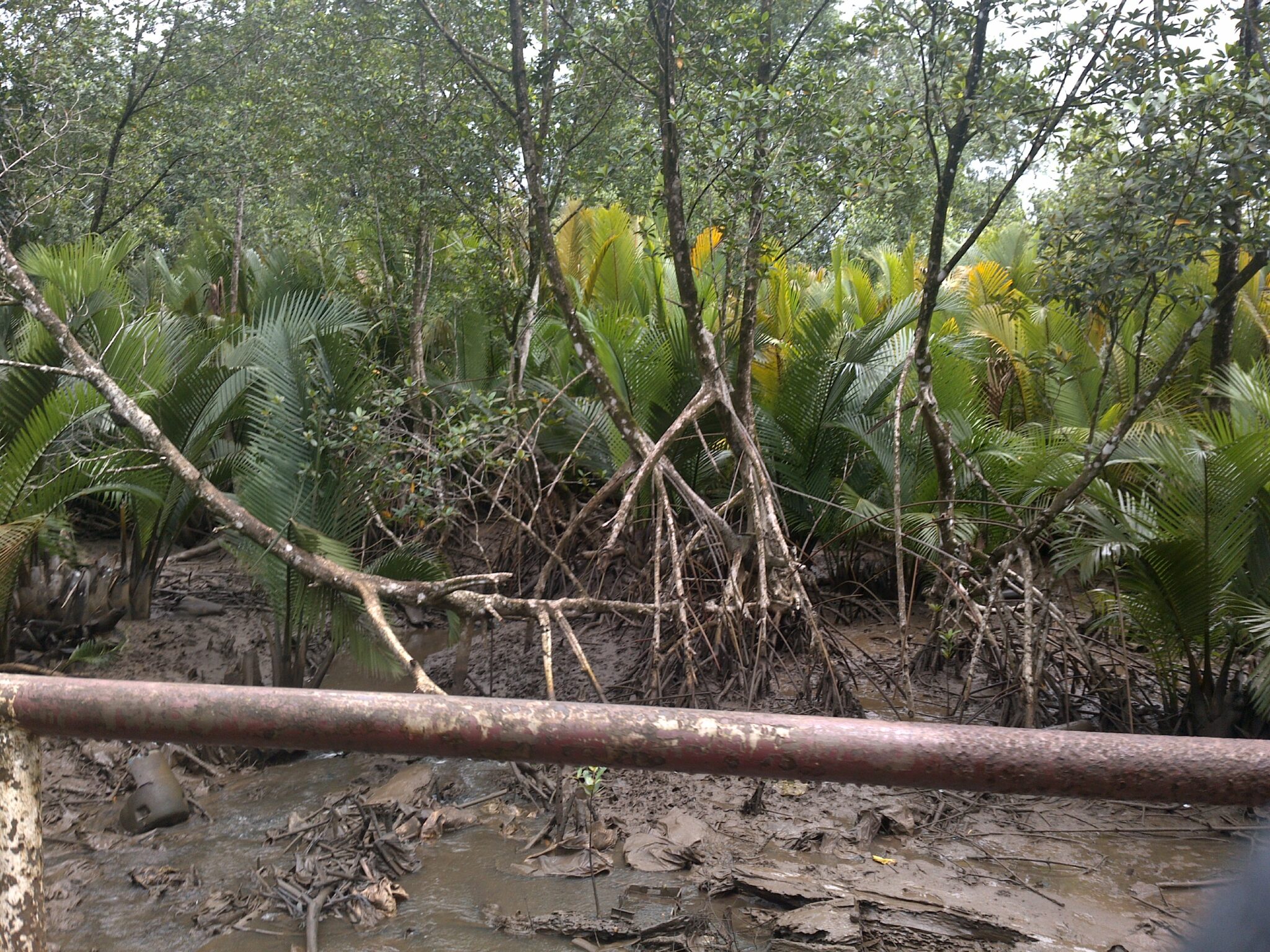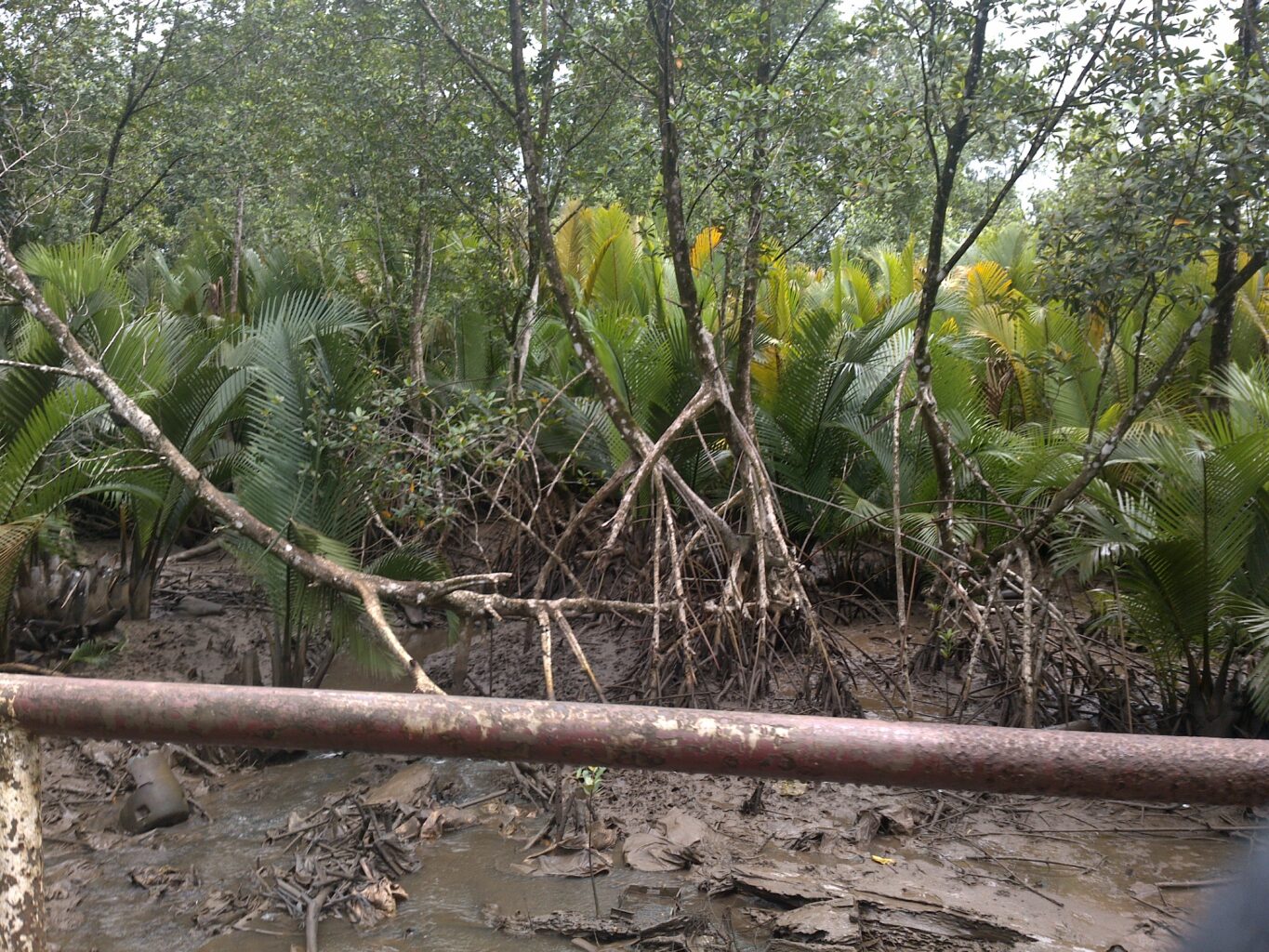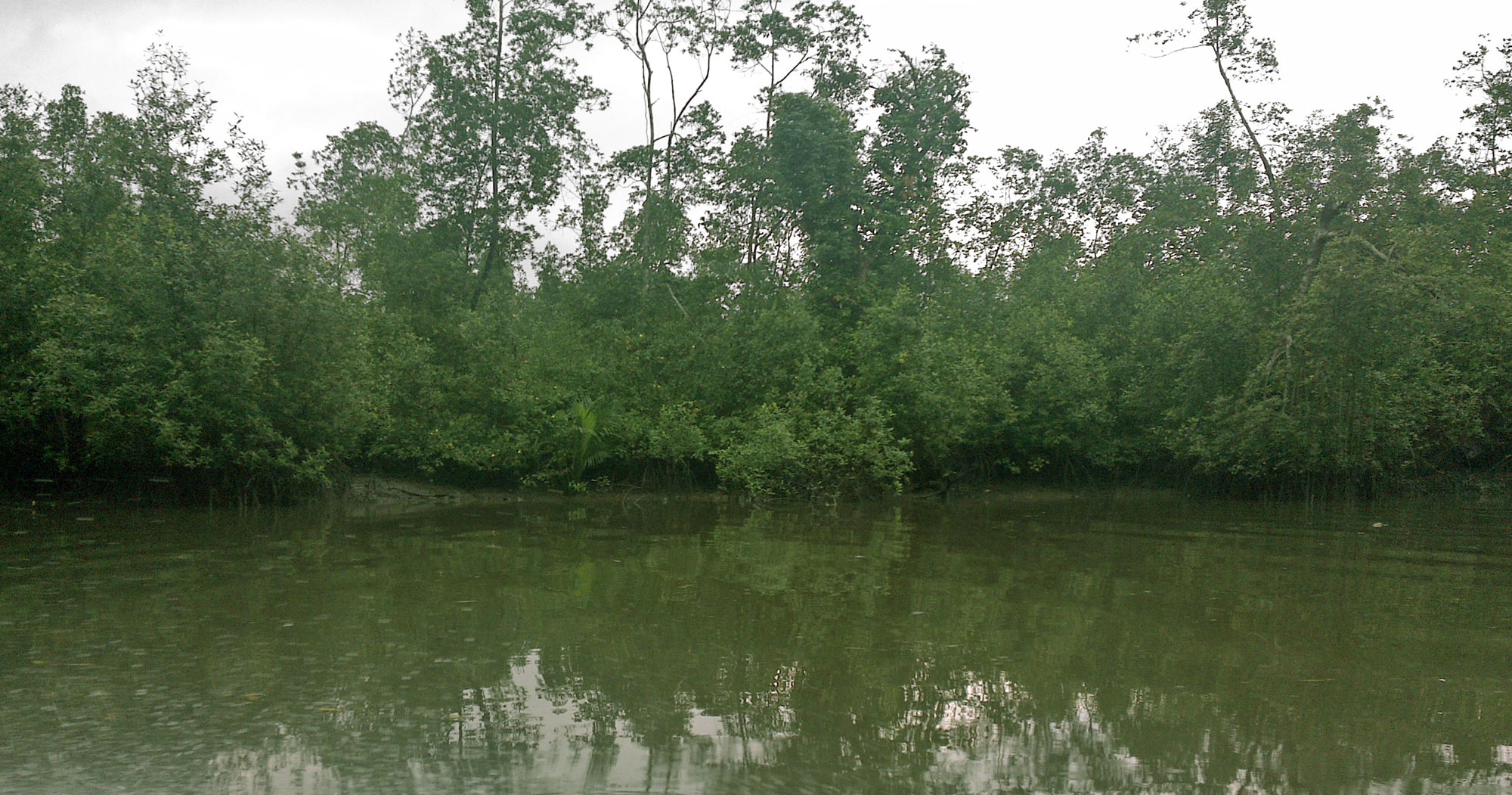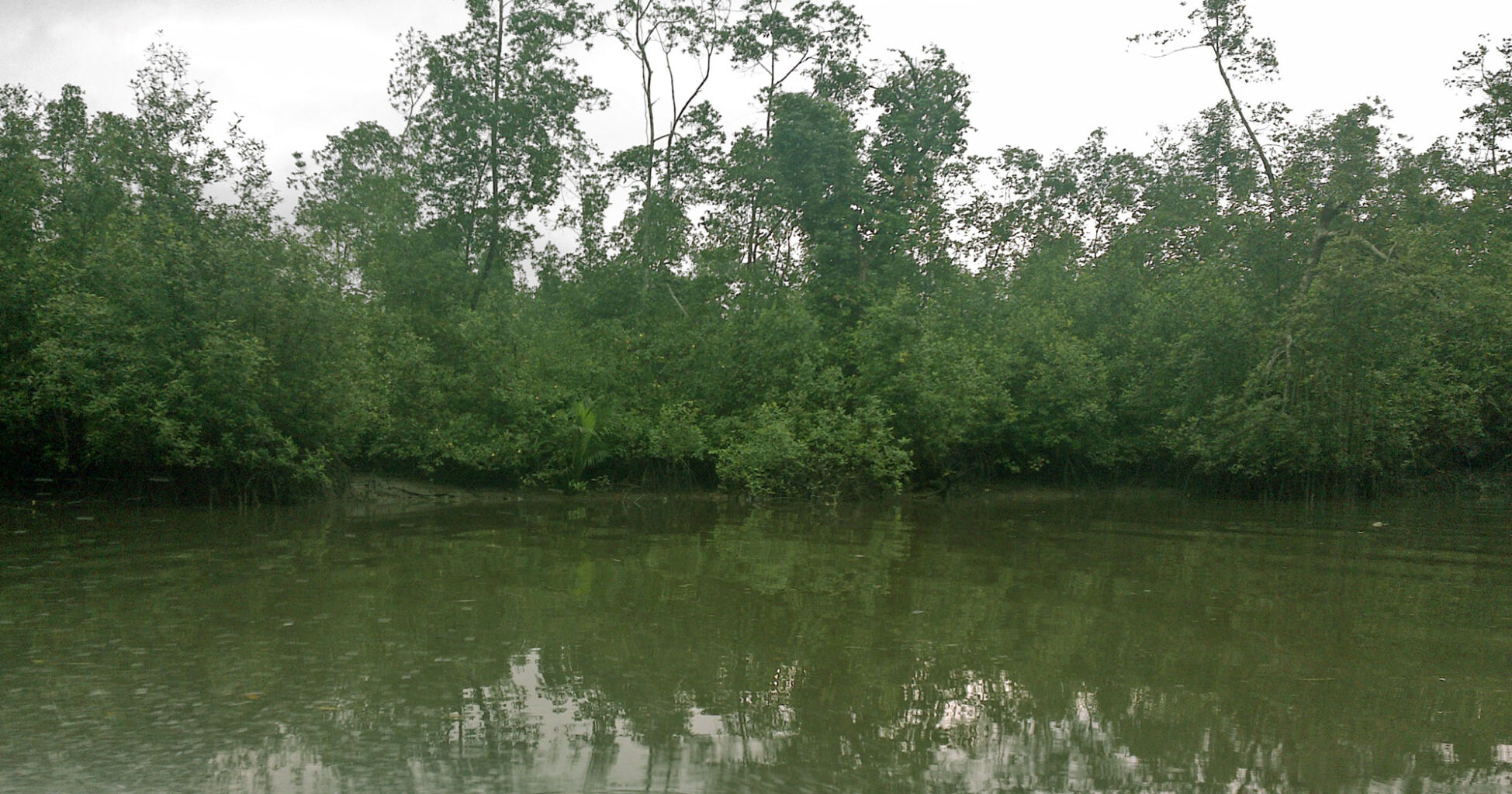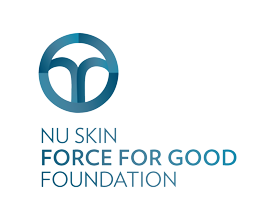Manoka Island is the site of vast mangrove forests and the habitat of African manatees, crocodiles, sea turtles, the ornate hornbill, African spoonbill, and Gabonese grey parrot, among many other species.
It’s one of Cameroon’s least developed islands, and most of the population lives below the poverty line. People gather wood, fish, and smoke fish for their livelihoods; trees are cut for everything from cooking to construction. There is no electricity.
The 500 residents of Manoka have a history of conservation action, including protecting sea turtle nesting areas, and banning the harvesting turtle eggs or eating of turtle meat. In 2017, they reached a five-year agreement with the Ministry of Forestry and Wildlife to create the 1,878-acre Manoka Community Forest. Management of the forest has been the responsibility of the community, with technical assistance from the government. However, actual protection of the forest has fallen short. The loss of mangroves is particularly concerning to community leaders.
A local nonprofit, Support for the Protection of the Environment and Development, or APED, is working with the community to create a 25-year management plan to protect 2,471 acres of mangroves. One person from each household attends planning and education sessions.
Of the island’s many pressing needs, the most urgent is access to clean water. The only wells on the island are at the military base and the Catholic church, so many islanders dig open wells, collect water from a polluted stream, or gather (unreliable) rainwater. Waterborne illnesses are rampant and have led to loss of life; children are particularly vulnerable. APED will drill boreholes for fresh water, provide solar electricity for 30 of the neediest households, and offer soap-making training as a livelihood opportunity.


